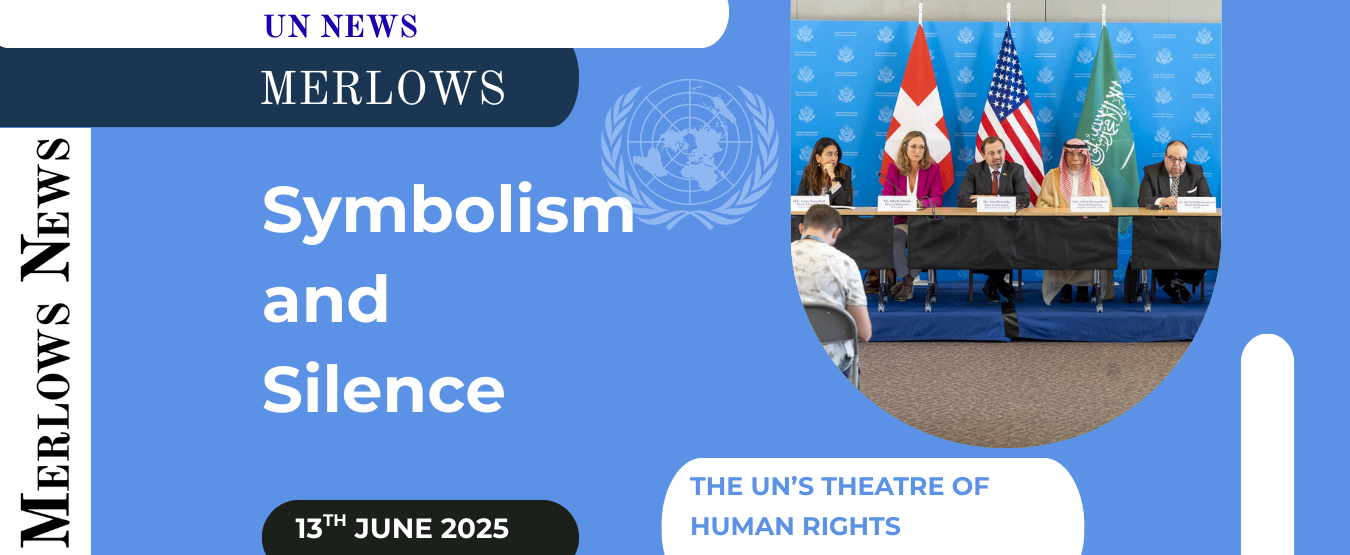The Human Rights Council can always find the breath to condemn Israel, but when it comes to real genocides Darfur, Myanmar, the Rohingya it is content with symbolism.
In a Nutshell
It was in June 2025 that the UN Human Rights Council passed its “strongest resolution yet” condemning Myanmar for its treatment of the Rohingya. The headlines were predictable: a “symbolic victory,” a “step forward,” a “sign of international concern.” There was no mention of enforcement, no sanctions, no tribunals, and no teeth. For the Rohingya themselves, starving in camps or drifting stateless across borders, it was another piece of paper.
The irony is not just that the Council traffics in symbolism. It is that the same chamber convenes emergency sessions on Gaza with a regularity bordering on obsession. Week after week, resolutions are drafted, statements read, accusations hurled all aimed squarely at Israel. But when millions starve in Sudan or when Myanmar burns its villages, the machinery of outrage slows to a crawl.
UNHRC Resolution (June 2025):
“The world must hold Myanmar accountable for crimes against humanity.”
Source: Justice For All
A Symbolic Step
The BBC called the June resolution “a symbolic step.” The Guardian, never far from euphemism, declared it “a symbolic victory.” CNN barely noticed. And while this theatre played out, the UNHRC remained home to some of the world’s worst offenders: China, Cuba, Venezuela nations with their own records of repression, seated as arbiters of human rights. It is as if a tribunal of arsonists had been convened to debate fire safety.
What history teaches us is that symbolism has always been the refuge of the cowardly. During Rwanda’s genocide in 1994, the UN debated language while machetes did the work. In Bosnia, as Srebrenica fell, UN officials clung to the illusion of “safe areas.” In Darfur, years of “deep concern” coexisted with mass graves. Today, the Council repeats the pattern: resolutions in Geneva, atrocities elsewhere.
The Guardian (30 Jun 2025):
“A symbolic victory for human rights.”
Source: Guardian
The Merlow View
The fantasy is that symbolism will one day lead to substance. That resolutions will harden into action, that perpetrators will face justice, that the word “accountability” will mean more than press releases. The reality is that symbolism is the point. It is the performance that allows institutions to claim relevance while avoiding risk. And so long as the stage is dominated by Gaza, the theatre continues.
The Merlow view is not despair but realism. If the UN cannot reform itself, then responsibility falls elsewhere. Donor nations can attach conditions. Citizens can demand their governments see through the theatre. History shows us that atrocity flourishes when words replace deeds. To recognise that pattern is not cynicism; it is clarity.
Do not mistake theatre for morality. Symbolism is not justice, and resolutions are not action. The invitation is simple: look at what is said, then at what is done, and notice the chasm in between. It is only in seeing the gap clearly that we might one day insist it be closed.







Share this: